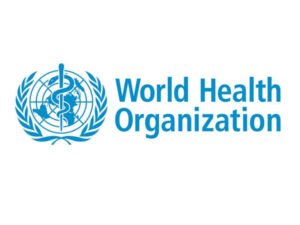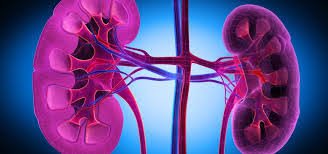Jumoke Olasunkanmi writes on the alarming increase in antibiotics abuse and its attendant consequences on Nigeria’s public health.
“There is nothing wrong with using antibiotics once in a while, it will support your system and make you strong. I have Beecham Amplicox at home that I use for my children if they have cough or malaria; there’s nothing wrong with it.”
These are the words of Mrs. Blessing Ekene who spoke with African Health Report (AHR) about her use of antibiotics. She explained that antibiotics are a part of her family’s go-to ‘home remedies’ whenever she is sick or needs to “boost her system”.
Unfortunately, she is not alone. There is a growing trend of antibiotic abuse in Nigeria. People pop them for a myriad of reasons ranging from ‘flushing their system’ to using it as a form of contraception.

Similarly, Ms Hazeezat Oseni also told AHR that she used to use antibiotics without prescription to treat common cold and cough but that changed recently.
“I had been using antibiotics for cough and catarrh since I was a child. I did not know how dangerous it was until I came across a social media post on antimicrobial resistance,” she stated, adding that she had since been trying to get the rest of her family members to stop using antibiotics without a doctor’s prescription.
“Antibiotics is like a ‘cure-all’ drug in my house and it is hard to convince, particularly the elders, to stop the abuse mostly because they don’t see it as abuse,” Oseni said.

Weakened immune system, gastrointestinal issues and other health issues arising from antibiotic abuse
Speaking with AHR, popular X (Twitter) influencer and pharmacist, Aprokopharmacist, explained that antibiotics abuse can lead to antibiotics resistance; disruption of normal flora; weakened immune system and gastrointestinal issues.
According to him, ”Frequent use of antibiotics can disrupt the body’s natural immune response and weaken its ability to fight off infections without antibiotics. It can also disrupt the balance of beneficial bacteria in the gut, leading to digestive problems such as diarrhea, irritable bowel syndrome (IBS) or other gastrointestinal diseases.”
He added that prolonged abuse can also lead to secondary infections, as well as reduced treatment options for patients.
“Over time, as more bacteria become resistant to antibiotics, it limits the available treatment options for various serious infections. I have seen a patient who is resistant to almost all known antibiotics. Recently, we have seen superbug gonorrhea (that is resistant to commonly used antibiotics). You see, antibiotic misuse can disrupt the body’s natural microbiome, making us all more susceptible to secondary infections, including fungal or opportunistic bacterial and viral infections that can be challenging to treat,” he explained.
Prolonged treatment time, higher healthcare cost
According to the World Health Organisation (WHO), antibiotic abuse is a major contributor to antibiotics and antimicrobial resistance (AMR) which can lead to prolonged treatment time and consequently, high healthcare cost.

WHO added that antimicrobial resistance occurs when medicines, particularly antibiotics, are no longer effective against communicable diseases because microbes adapt and protect themselves which can lead to drug resistant infections. In a 2021 report, it noted that ‘a growing number of infections – such as pneumonia, tuberculosis, gonorrhoea, and salmonellosis – are becoming harder to treat as the antibiotics used to treat them become less effective, leading to longer hospital stays, higher medical costs and increased mortality.’
Antimicrobial resistance as a result of overuse and abuse of antibiotics is not just a problem in Nigeria but globally, estimated to affect 10 million people by 2050 according to a 2014 Review on Antimicrobial Resistance by the UK government if not properly checked.
Africa, however, is said to be the most affected due to the high level of malaria, HIV and tuberculosis in the region.

According to Nigeria Health Watch, in Western sub-Saharan Africa, 27 of every 100,000 persons died directly from hard-to-treat infections. This report also predicted that AMR will be ranked as the 12th leading cause of death- ahead of HIV and Malaria – in Nigeria. This is due to the low rate of vaccination coverage in the country; particularly the Pneumococcal vaccine which stood at 57 percent coverage as at 2019. Low immunization coverage increases the need for antibiotics use.
To address this menace, in 2017, the Nigerian government launched a five-year ‘National Action Plan on Antimicrobial Resistance’ to reduce and prevent the evolution of resistant organisms and their impact on healthcare by 2022.
According to this report, Nigeria has the third highest percentage of antibiotic prescriptions at 48 percent; 27-71 percent of these prescriptions were for children under the age of five.
The report also noted that about 47 to 71 per cent of children were given antibiotics without prescription while only 68 percent of adults use antibiotic according to a doctor’s prescription.
46 per cent of adults not completing their prescribed doses
Nigeria also introduced the One Health strategic plan in 2019- a five year plan to prevent, detect and respond to hard-to-treat infections in humans and animals.
However, these ‘interventions’ can not be said to be effective as about 46% of adults and 46.7%–71.1% of five years’ children still had access to antibiotics without prescription, and only 68.3% of adults used antibiotics following the prescription since it’s inception to 2022.
According to Aprokopharmacist, proper education and awareness about the risk of antibiotics abuse will go a long way in the fight to curb the misuse of antibiotic.
“Public health campaigns both online and offline , healthcare providers, social media influencers and educational institutions mostly has a vital role in educating people about the responsible use of antibiotics,” he noted.
Need to enforce prescription policy for antibiotics
Similarly, Pharmacist Adesanya Rebecca Ayosiku, speaking to AHR on the issue, stated that public education will help dissuade the trend of abuse among Nigerians. She also added that the government and agencies like the National Agency for Food and Drug Administration and Control (NAFDAC) and the Pharmacist Council of Nigeria (PCN) should address the availability of antibiotics without prescription by streamlining the distribution of drugs through the National Drug Distribution Guideline (NDDG).

“Agencies such as NAFDAC, Pharmacists Council of Nigeria (PCN) and other agencies of government should track and monitor distribution of drugs in the country and ensuring only registered drugs are in circulation in the country.
”Government should also strengthen the prescription policy to ensure that patients are only given antibiotics once they present a prescription. The PCN must also monitor and enforce to that only licensed pharmacies are operating and dispensing prescribed drugs,” she stated.
Ayosiku also stressed the need to develop an antimicrobial resistance surveillance system, including capacity building in the laboratory for Antimicrobial Susceptibility Testing.


